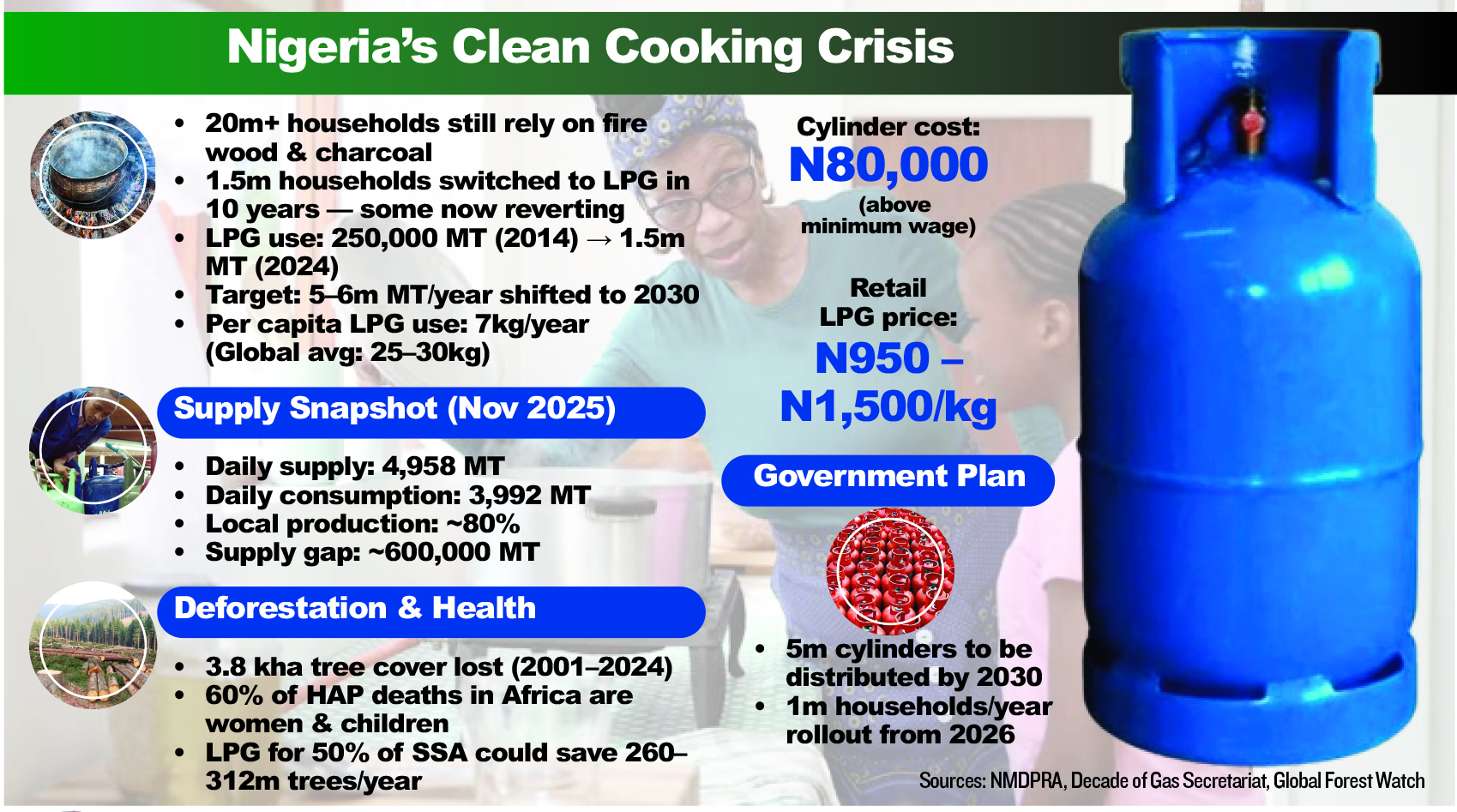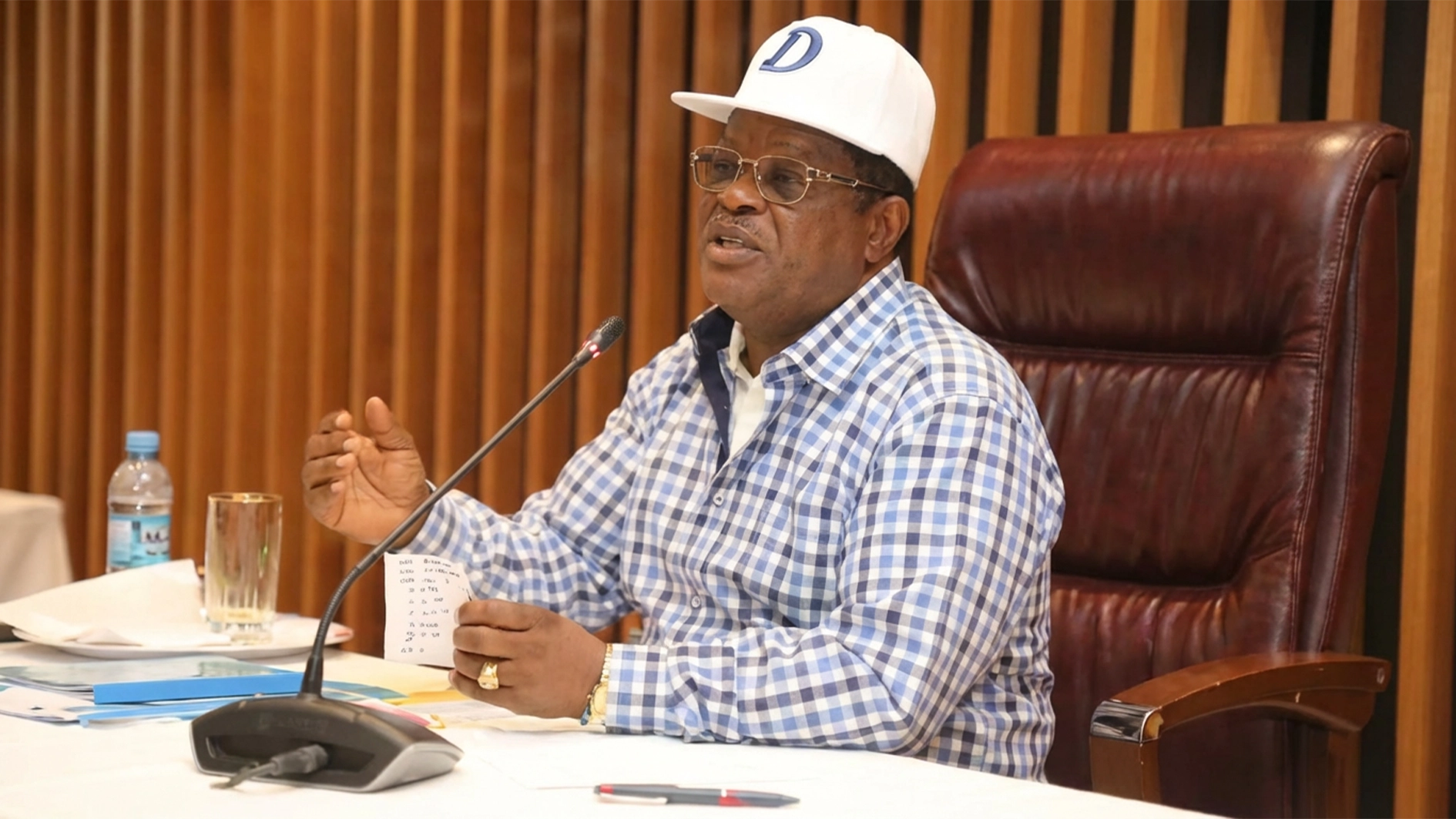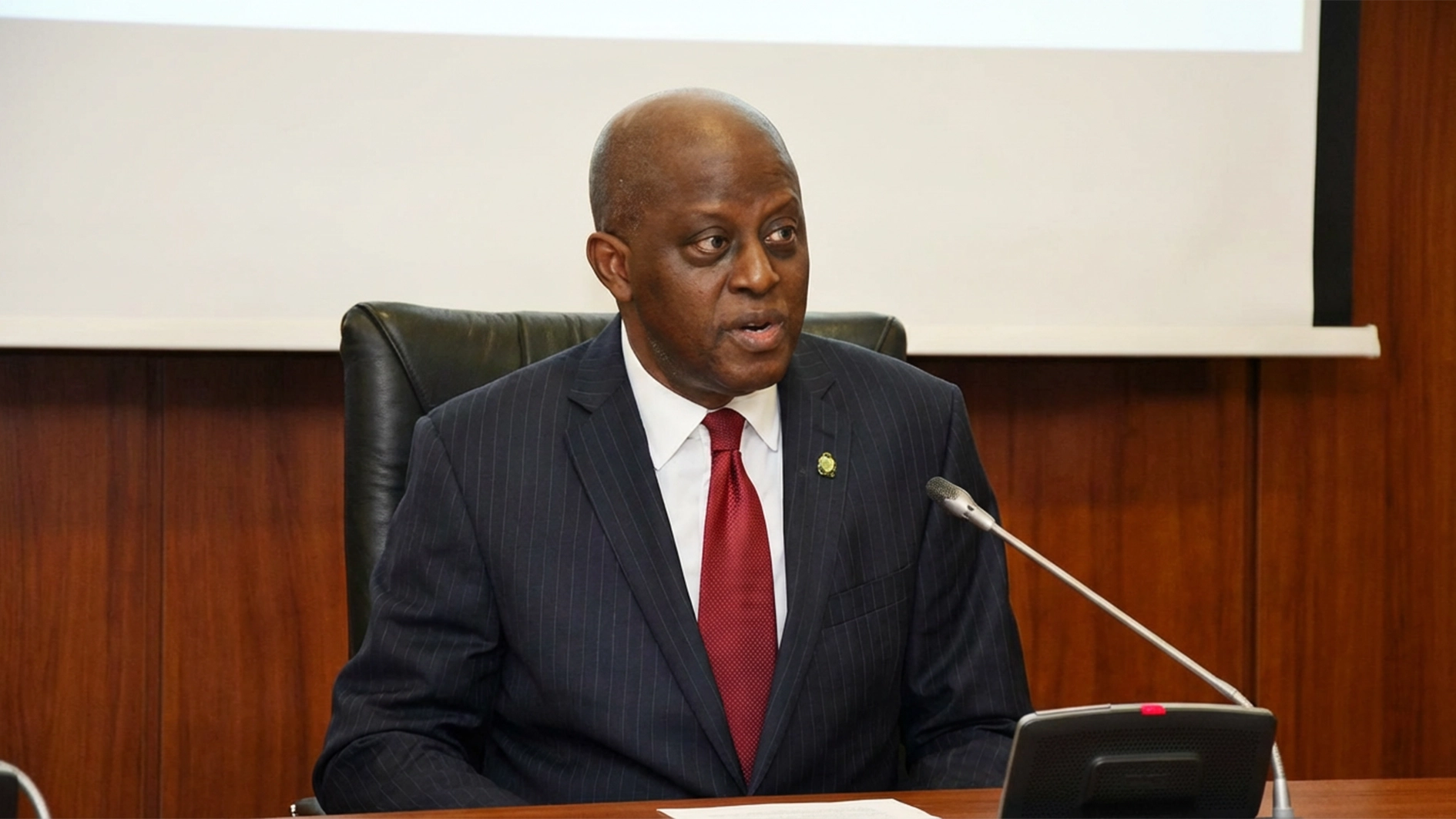Good things come in small packages. Nothing embodies this old saying than the story of Poland, a nation in central Europe, which was once yoked under economic instability after the collapse of communist rule in 1989. Today, it has risen from the ashes of its past to become Europe’s beautiful bride, armed with a $1 trillion economy, a milestone Nigeria equally aspires to reach. As the country focuses on deepening transparency, achieving efficiency, and improving revenue generation, what lessons can be drawn from Poland’s success story of leveraging technology, policy reforms, and private investment to drive industrial growth? TOPE TEMPLER OLAIYA, who was in Poland, reports.
Poland was like Nigeria 25 years ago, a period when Nigeria was taking baby steps at the onset of the Fourth Republic after long years of military rule.
The immediate aftermath of the communist collapse in Poland was a period of intense difficulty as the country rapidly implemented a “shock therapy” transition to a market economy. Its transition from communism in 1989 involved initial significant struggles, including a severe recession, high unemployment, and increased economic inequality. However, over subsequent decades, Poland has experienced remarkable economic growth and social transformation, becoming one of Europe’s most dynamic economies.
Today, Poland is becoming one of the 20 largest economies in the world, according to new figures from the International Monetary Fund (IMF). The development marks a significant symbolic moment for a country that has seen its economy grow rapidly since shaking off communism 35 years ago. It has also prompted Poland to seek to join the G20 group of major world economies.
After rebuilding in silence to achieve its tremendous success, the country is seeking to step out of the shadows of its once “big brother,” Russia, by opening up to the world. Embracing their new realities, they have effectively moved away from the Russian sphere of influence by joining NATO and the European Union (EU). At the same time, it now vigorously pursues an independent policy, establishing diplomatic and bilateral relations with key allies and the rest of the world, including significant relations with post-Soviet states like Ukraine.
Transiting from struggling nation to thriving industrial hub
IN its latest World Economic Outlook, the IMF estimates that Poland’s GDP will reach $1.04 trillion this year, overtaking Switzerland ($1 trillion) to become the world’s 20th largest economy. The IMF’s forecasts for future years indicate that Poland’s GDP will continue to grow faster than Switzerland’s until 2030.
However, the data also show that the two countries just above Poland in the ranking – Saudi Arabia ($1.27 trillion) in 19th and The Netherlands ($1.32 trillion) in 18th – will remain ahead in the coming years. The world’s largest top three economies are the United States ($30.62 trillion), China ($19.40 trillion), and Germany ($5.01 trillion), Poland’s western neighbour and biggest trading partner.
Others in the big boys club are: Japan ($4.28 trillion), India ($4.13 trillion), United Kingdom ($3.96 trillion), France ($3.36 trillion), Italy ($2.54 trillion), Russia ($2.54 trillion), Canada ($2.28 trillion), Brazil ($2.26 trillion), Spain ($1.89 trillion), Mexico ($1.86 trillion), South Korea ($1.86 trillion), Australia ($1.83 trillion), Turkey ($1.57 trillion), and Indonesia (1.44 trillion).
South Africa’s GDP is estimated at $410.34 billion, making it the largest economy in Africa, while Nigeria’s GDP is projected to be $285 billion, making it the fourth-largest African economy after South Africa, Egypt ($347.34 billion), and Algeria ($268.89 billion).
Poland’s rise over the last 35 years, since emerging from communism, has been rapid. In 1990, it was the world’s 38th largest economy, according to the IMF, ranking just below Pakistan and Algeria. By the year 2000, Poland had risen to 27th, and by 2010, it moved to 25th.
Last month, when economic data already indicated that Poland’s economy had surpassed $1 trillion and was set to become the world’s 20th largest, its Foreign Minister, Radosław Sikorski, announced that, during a visit to the U.S., he had discussed the possibility of Poland joining the G20 club of major world economies.
“Because Poland has joined the so-called club of trillion-dollar economies, I tried to convince the United States, which will hold the presidency of the G20 group next year, to invite us to this group,” said Sikorski.
“We have the right to do this not only as one of the 20 largest economies in the world, but also as a country that presents a political and intellectual argument, because we are the country that has successfully transformed from a planned economy to a free economy,” he added.
PAIH’s mission and burden of success
THE task of relaying the story of Poland’s transformative growth rests on the Polish Investment and Trade Agency (PAIH), which has, in the last few years, hosted journalists from across the world, especially from Asia and Africa, on a study tour of the country. The project is funded by the Republic of Poland, the European Union (EU), and European Funds for Smart Economy.
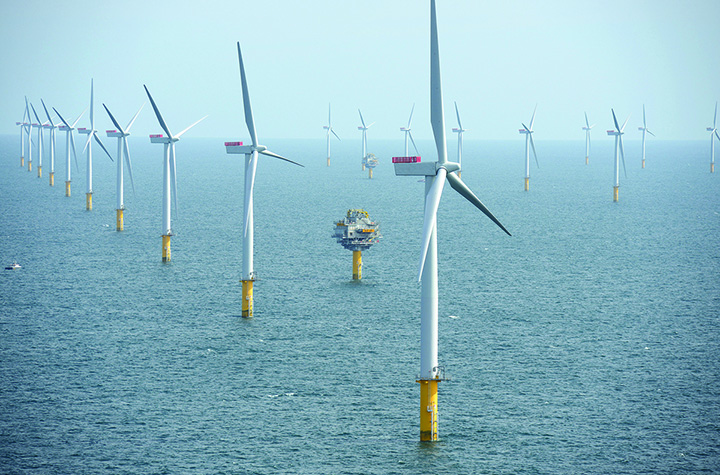
On the heels of an inaugural Polish-Nigeria Economic Forum held in Lagos in September, where the Polish Ambassador-Designate to Nigeria, Michal Cygan, re-established bilateral relations between both countries and unveiled opportunities for Nigeria and Poland to benefit from complementary strengths across trade, investment, innovation, and human capital development, The Guardian was enlisted alongside select group of journalists, who toured Poland for a week and visited critical infrastructures understudying the processes that has worked, the lessons picked from the mistakes made and potential for Nigeria in addressing its hydra-headed challenges.
According to Małgorzata Kucharek, PAIH specialist of the machinery sector and manager of the “Internationalisation of SMEs – Brand HUB” project, the study tour is to promote Polish companies abroad in specific sectors while showcasing the country’s success stories and how such could be replicated abroad.
“We know that Nigeria is a country with promise, especially as a big oil-producing nation with so much gas. This is a very important market that we could explore with our companies. Our mission is to support Polish companies to develop and export their expertise and services abroad,” she said.
The Ambassador-Designate, Cygan, alluded to this at the event in Lagos when he said the forum is about building trust for their relationships and opening new trade corridors between the two countries. “For us and many Polish companies, we have outgrown the domestic market, as well as European markets, and we are looking for great partnerships not just to sell but also to invest, train and strengthen the growing industrialisation efforts in Nigeria to the benefit of its teeming growing population as Poland seeks to expand its footprint in Africa.”
However, what is not stated, though, is that the EU is gravely worried about migration trends, seeing a sizeable chunk of Africans move en masse to Europe in search of a better life. As a result, while Western countries are tightening their migration policies, the EU is seeking to solve some of Africa’s problems to stem the Japa tide.
Already, Spain, Italy, Greece and Cyprus have been considered to be “under migratory pressure” by the European Commission, paving the way to the relocation of asylum seekers to other EU member states.
The commission had proposed to the EU 27 member states the Annual Solidarity Pool, a mechanism to determine the total number of asylum seekers to be relocated, and the amount each country should allocate, or compensate for by paying. Each member state – excluding the ones under migratory pressure – has to contribute in proportion to its population and total GDP, and could choose among three options to meet the needs outlined in the solidarity pool: relocating a certain number of asylum seekers to their own territory, pay €20,000 per person they do not relocate, or finance operational support in member states under migratory pressure.
While Poland is seeking to maintain a strong control on its immigration processes and is not too open to foreigners, to avoid the migrant problems already faced by Germany, France, and the United Kingdom, it is looking towards a long-term investment in key African nations that will keep youths engaged in their home countries.
Polish model of homegrown development
WHAT has guided Poland and helped it to stay the course in this remarkable feat? A peep into this is her citizens’ idea of nationhood as typified by three sentences. While there is no official motto, the unofficial mottos of Poland include: “For our Freedom and Yours,” “For Faith, Law and the People,” and “God, Honour, Fatherland.”
“For our Freedom and Yours” is commonly associated with the times when Polish soldiers fought in various independence movements all over the world. It is the slogan of the Polish resistance. “For Faith, Law and the People” points to the importance of rebuilding public confidence in legal and governmental institutions by upholding principles like justice, mercy, and faith. “God, Honour, Fatherland.” These three words represent the national identity of the Poles: their faith in God, their sense of honour and their patriotism.
These were the moulding blocks, guiding principles and quiet power that propelled the industrial revolution in Poland. Then came the hard work of transiting from a communist society to a market economy, which was a sharp shift from a state-run economy to one driven by market mechanisms. The transition was accompanied by severe inflation and a deep recession.
Despite these challenges, the Polish government created a market-based price mechanism, established internal convertibility of the currency, and enhanced exports. The first years of reform were particularly hard as society had to pay the price. But there was no looking back.
While the reforms did result in some successes, such as increased trade with the West and a gradual decline in inflation rates by the early 1990s, they also faced considerable public dissatisfaction and political opposition as the economic hardships persisted.
Over time, Poland’s economy began to stabilise, and by the mid-2000s, it experienced notable GDP growth, illustrating the long-term impacts of its initial market reforms amidst significant short-term challenges.
On its journey to self-sufficiency, Poland had to look inwards to solve its problem, harnessing every tangible and intangible resource at its disposal. From agriculture to energy, education and manufacturing, one mantra runs deep; everything – men and materials – must be sourced locally.
While the pains of reforms began to bite harder, Poland experienced a wave of migration, like the Japa surge Nigeria is presently experiencing, as able-bodied men and women fled the country in search of greener pastures across Europe and America. But as the drive in manufacturing and industrialisation began to bear fruit, creating jobs and opportunities for those who stayed back, Poles began to return home in droves to plug themselves into the renaissance that has today made it the fifth largest manufacturing country within the EU.
Many companies are already choosing to relocate production plants from Asia to Poland to diversify business activity and shorten supply chains because of its strategic location in central Europe. Also, Western firms are setting up factories in Poland to bring operating costs down.
Leapfrogging into $1 trillion economy, lessons for Nigeria from Poland
THE Supervisor of the PAIH Foreign Trade Office in Lagos, Krzysztof Staśko, says he’s Polish by birth but Lagosian by heart after living continuously for over 20 years in Lagos, Nigeria’s commercial nerve centre. He sees the similarities between Poland and Nigeria, especially the struggle with infrastructure challenges.
He said: “We have passed through the same challenges as Nigeria to now become the second fastest growing economy in Europe. We once had challenges with electricity 20 years ago. In fact, I was one of those who Japa-ed from Poland in the early days of the struggle, and I found home in Lagos. Nigeria can learn a lot from our experiences and mistakes, and copy the best practices too.”
According to him, the idea of bilateral relations goes beyond just sending container-loads of devices and equipment; it should be more about the transfer of knowledge and expertise, and his first recommendation is massive job creation through investments that will engage young people.

“In Nigeria, sometimes I sleep without an air conditioner because the generator is faulty or there is no fuel. There are simple things to solve the power challenge because Nigeria is blessed with enough energy sources, like the gas that a lot of it at being wasted through flaring and coal. We wish we had this in Poland, the massive quantity being left to waste. There are even modern technologies that can turn coal or human waste into electricity without polluting the environment, and Nigeria is blessed with coal, especially in the Coal City of Enugu State. It is not that difficult or rocket science to turn that into industrial energy, while green energy like hydro, wind or solar can be deployed to homes and communities, but to run the manufacturing sector and machines, you need high energy, which coal and gas can provide. That is one problem solved, which will create a catalyst for several industrial developments.
Staśko continued: “Gas is also in abundance to make mobility and transportation easy, especially in this period where everyone is looking for new sources of gas, which is being wasted in Nigeria. If Nigeria can finish the NLNG Train 7 gas project, the $60 billion high-speed rail and gas infrastructure project, which is a 4,000km high-speed rail network connecting major cities of Lagos, Abuja, Kano, Port Harcourt powered by Nigeria’s vast natural gas reserves alongside the Ajaokuta-Kaduna-Kano (AKK) gas pipeline project, a 614km pipeline transporting natural gas from Ajaokuta to Kano plus the Trans-Saharan Gas Pipeline (TSGP), a 4,000km pipeline transporting gas from Nigeria through Niger to Algeria to connect to existing European pipelines, allowing Nigeria to export gas to the European market, it should be able to solve the country’s energy problems and make additional money from the exported surplus gas.
“Honestly, Nigeria should be Dubai times five by now if resources are properly utilised, not to mention all the millions of people of working population at its disposal, who will be willing to turn Nigeria into an industrial giant instead of travelling out to pick up menial jobs abroad. But at the root of it is Nigeria’s inability to appropriately fix its corruption problem while translating its potential into tangible results,” Staśko, who prefers to be called Chinedu, said.
Instructively, Poland is turning its attention towards Nigeria’s energy sector, having halted oil imports from Russia. Polish authorities believe Nigeria could play a key role in filling that supply gap, a partnership that promises mutual economic benefits and stronger strategic cooperation between the two countries.
This was much emphasised in the historic first visit of a Polish leader to Nigeria in September 2022, when former President Muhammadu Buhari received in Abuja, Andrzej Duda, who was president of Poland until August 6, 2025.
On that occasion, he said: “From an energy security perspective, today’s talks are very important for us when it comes to the supply of LNG and crude oil to Poland and the EU. Nigeria is a country very rich in these raw materials, and the first deliveries to our terminal in Świnoujście, as well as the import of crude oil by Lotos to Poland, have already taken place in recent years. We would like to strengthen this cooperation; we would like to see greater supplies to our country from Nigeria in the future, to develop our economic relations in this area.”
Spotlights of leading firms driving Polish development
UNIMOT: A multi-energy capital group and leader among independent importers of liquid and gaseous fuels in Poland that trades various energy products like diesel, gasoline, LPG, natural gas, and electricity. It is also involved in rail logistics, aviation fuels, bitumen and asphalt production for road construction and has a network of AVIA fuel stations in Poland and Ukraine.
During a visit to one of the 10 UNIMOT Group fuel terminals in Piotrków, practical aspects of the functioning of the fuel infrastructure and energy logistics in the country were presented.
The terminals located across the country serve as a base for fuel logistics, a one-stop integrated depot for vehicles, trains and aeroplanes. It also serves as a modular refinery making use of biofuels as a substitute for petrol and gas. Engine oil and vegetable oil are blended in the absence of crude oil.
The visit was an important element of PAIH’s activities to develop economic relations between Poland and Nigeria and to promote the competencies of Polish companies in the energy sector.
KME Autogas Systems: KME is a leading producer of LPG and CNG systems, operating in the market of automotive gas installations since 1993. It recently made a proposal to the Lagos State government for the implementation of an efficient alternative fuel, suggesting the use of LPG over CNG. While it commends the government’s CNG initiative in the wake of petrol subsidy removal, it notes that solely focusing on CNG carries the risk of slow deployment due to its capital-intensive nature and complex infrastructure requirements.
The Commercial Director at KME, Mariusz Mucha, noted that the cost per conversion of CNG ranges from N900,000 to N1.6 million for a passenger car or SUV, while for LPG, the cost is between N100,000 and N200,000 for tricycles and between N300,000 and N350,000 for a passenger car. “Nigeria wastes vast amounts of natural gas by burning it in flares in oilfields. This practice is not only an ecological disaster, but also a huge economic loss. In 2024, gas with a market value of $1.1 billion was burned in flares. This gas is a rich source of LPG.
“However, the creation of a strong domestic market for autogas generates an economic incentive to invest in infrastructure for capturing and processing this gas. This way, the practice of burning gas, which is currently a burden, can be transformed into a valuable national asset that will feed the domestic transport market and generate additional income. Furthermore, a massive switch to autogas will bring immediate and measurable improvements in air quality in densely populated urban areas, which will translate into improved public health,” Mucha explained at the company’s headquarters in Lodz.
Kleszczów Commune: This is a rural municipality consisting of an open-pit lignite mine of coal deposit and the ‘Bełchatów’ power plant, Europe’s largest coal-fired power plant generating electricity from lignite and producing approximately 20 per cent of Poland’s electricity. As part of the energy transformation, electricity production is planned to be reduced by nearly half by 2026, ahead of its eventual shutdown by 2035 as the EU’s climate policy and international climate targets drive a push for decarbonisation. The total maximum capacity of the power plant is 5298 MW.
Poland is a major coal producer and consumer, with coal providing a significant portion of its energy. It is they, and the ninth-largest coal producer in the world, generating about 80 per cen of Poland’s electricity. Despite its importance, Poland is under pressure to shift away from coal and to phase out coal mines by 2049.
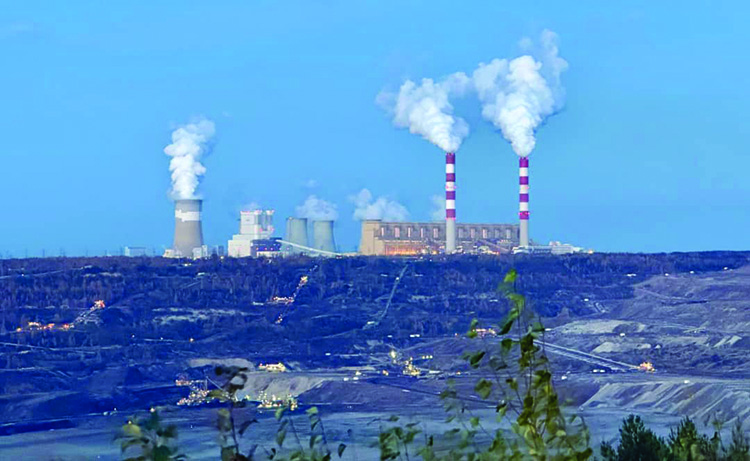
producing 20% of Poland ‘s electricity
Interestingly, Nigeria has significant coal reserves, estimated at about 650 million tons of proven reserves, but the sector is largely inactive due to obsolete infrastructure and policy shifts away from coal to fossil fuels. There are presently no active coal-fired power plants. Meanwhile, Poland is looking for a place to ship its coal plant equipment after winding the plant down.
President of the Kleszczów Commune Development Foundation, Piotr Kołba, noted that regions in Poland were heavily dependent on the coal industry, making the transition away from coal a complex social and economic issue. He expressed huge optimism about the possibilities of Polish companies’ expansion into the Nigerian market.
Alongside the chairman of the Kleszczów Commune Council, Michał Rejniak, Piotr led the team of journalists to a viewing point in Żłobnica, where they admired the Bełchatów open-pit mine, and the Ekobenz Company, which prides itself as the fuel of the future, where they learned about the production of synthetic, producing gasoline from ethanol (alcohol) and sewage waste.
Sunreef Yachts: The world’s leading designer and manufacturer of luxury sailing and power multihulls received the journalists’ delegation at the Sunreef Yachts shipyard in Gdańsk, where there was an engaging and valuable discussion about innovation, sustainable yachting and the future of luxury at sea. Poland is also the seventh largest exporter of automotive parts in the
Global brands sometimes base the production of their cars on components from Poland, establishing a reputation for supplying parts and technology all over the world.
It is easy to see today how the cities have blended history and modernity. Every building tells a story of the resilience of a nation that refuses to fade but instead turns its past of struggles and wars into the foundation of its future. In spite of its modest success, it is still writing its redemption story, brick by brick.
For Nigeria, the story of Poland offers important lessons. Cities like Aba, Kano and Kaduna, once vibrant industrial centres, can also bounce back with the right investments, local innovations and fresh ideas.



